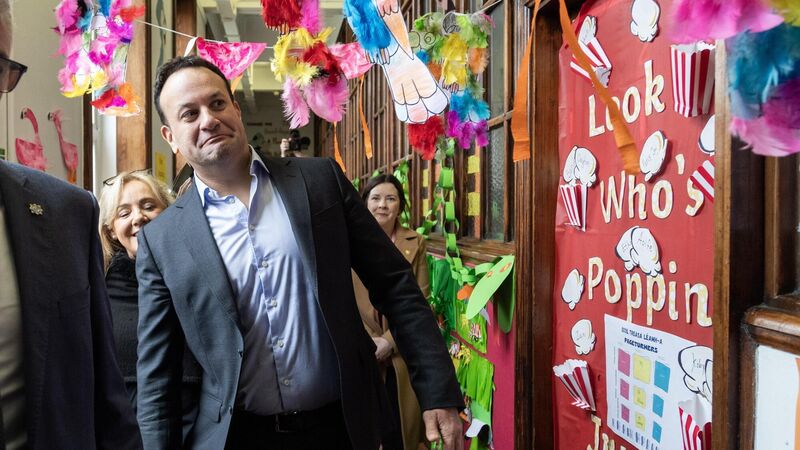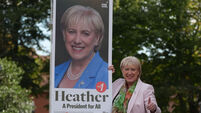Jennifer Horgan: We know the State has never ‘endeavoured’ to help women in real, legal terms

Taoiseach Leo Varadkar at Scoil Treasa Naofa CBS, where he cast his vote in the referendum.
I expected a yes/no result.
I suspect the first no is a protest vote against government.
















